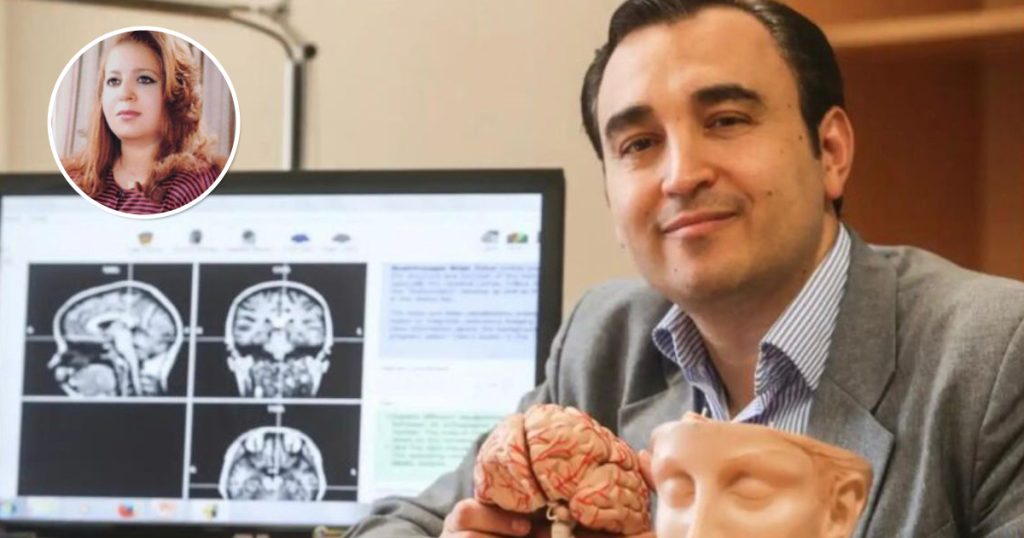As part of our long-standing mission to introduce outstanding Egyptian scientists abroad to President Abdel Fattah El-Sisi and to the media, with the goal of benefiting Egypt and honoring these distinguished minds, we present today an exceptional scientist: Prof. Dr. Ahmed Abdel Karim, who has committed himself to ensuring that people with paralysis are not deprived of internet access.
Prof. Ahmed Abdel Karim, a professor in the Department of Psychiatry and Neurology at a medical faculty in Germany, has developed a groundbreaking brain-computer interface technology. This innovation enables individuals with complete paralysis to interact with the internet and execute commands using the electrical activity of their brains. He has also pioneered new methods of transcranial brain stimulation using magnetic impulses to treat various psychological and neurological disorders.
In April of this year, Prof. Abdel Karim was invited as a keynote speaker and session chair at the 3rd International Conference on Psychiatry and Neurology, held in Luxor, Egypt. This participation marked another milestone in a fruitful scientific collaboration that has spanned over 20 years between his research group in Germany and Prof. Dr. Iman Khodr, Professor of Neurology and Director of the Department of Psychiatry and Neurology at Aswan University.
Through this collaboration, numerous leading research papers on the treatment of psychiatric and neurological disorders have been published in prestigious international medical journals, contributing significantly to both scientific knowledge and clinical practice.
Among Prof. Abdel Karim’s most notable achievements is the development of the brain-computer interface, allowing people with total paralysis to interact with the digital world. He also introduced non-invasive magnetic brain stimulation techniques to improve treatment outcomes for a range of mental and neurological conditions.
He was honored during the conference with the Conference Shield Award, recognizing his exceptional research contributions. In his remarks, Prof. Abdel Karim stated:
“It is a great honor to receive this award. Although I have lived in Germany since the age of eleven, I have always felt a deep sense of loyalty and longing for my homeland, Egypt. I am proud to contribute to the advancement of scientific research and medical treatment methods in my field within Egypt.”
Prof. Abdel Karim was born and raised in Cairo, where his father, Prof. Dr. Rahmi Abdel Karim, served as a mathematics professor at Cairo University and was a major inspiration in his pursuit of a scientific career. After completing his studies in Berlin, he taught at several universities in Germany and also at the University of Oxford in the UK. He earned his PhD in Neuroscience from the Faculty of Medicine at the University of Tübingen in Germany.
He now leads a research group at the University Psychiatric and Neurology Clinic in Tübingen, where his team focuses on the pathophysiology of neuropsychiatric disorders and the development of innovative treatment techniques.
Prof. Abdel Karim also works at Tübingen University Hospital, home to the historic “Alzheimer Hall,” established in 1906 by the renowned German psychiatrist Alois Alzheimer, who documented the first known case of the disease through a patient named “Auguste D.” The Alzheimer Hall remains one of the oldest facilities dedicated to Alzheimer’s research and treatment and continues to contribute to improved diagnostic and therapeutic approaches.
Prof. Abdel Karim has received numerous awards for his research published in renowned international journals, including the International Research Award from the European Society for Brain and Behavior in 2013. In 2021, he was named Lecturer of the Year in a national competition in Germany.
Notably, the collaboration between his team in Tübingen and Prof. Iman Khodr’s team in Assiut has led to pioneering studies in the field of psychiatric and neurological treatment. Prof. Abdel Karim concluded by saying:
“I extend a special call to my fellow Egyptian colleagues living in Germany to actively contribute to scientific research in Egypt and support the advancement of scientific and medical progress in our beloved homeland.”
